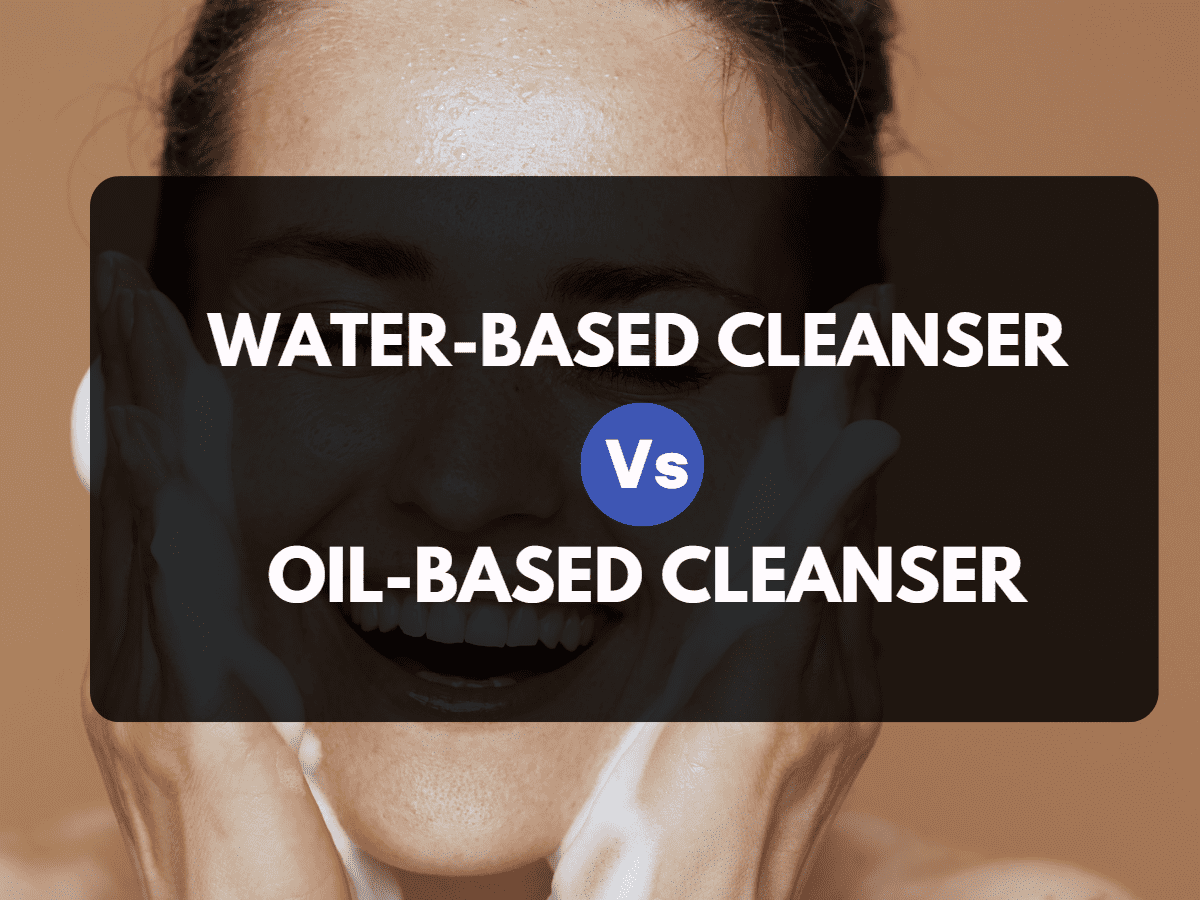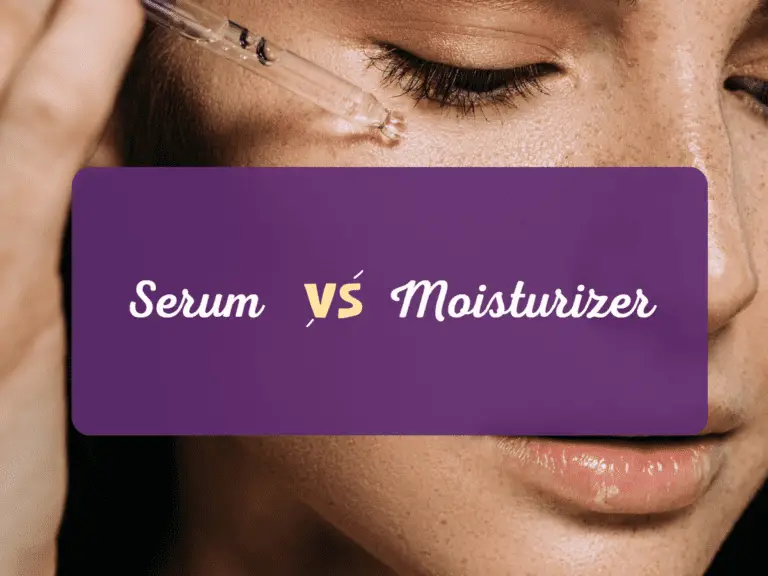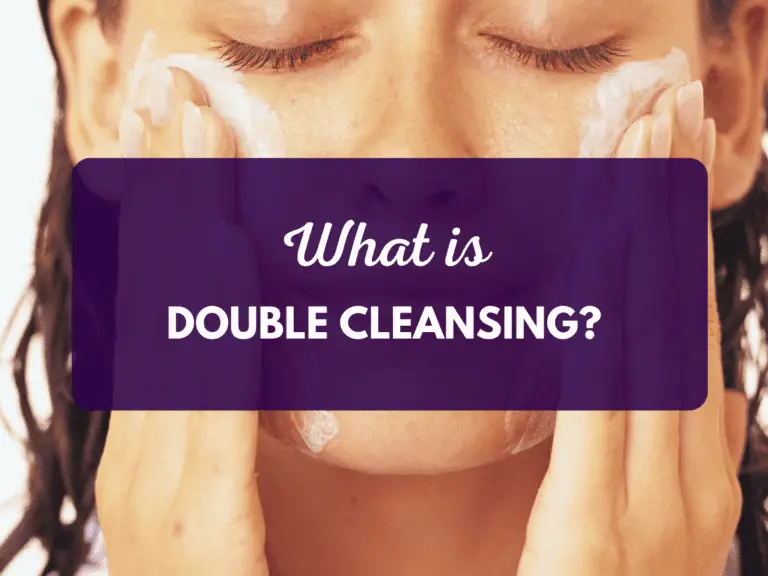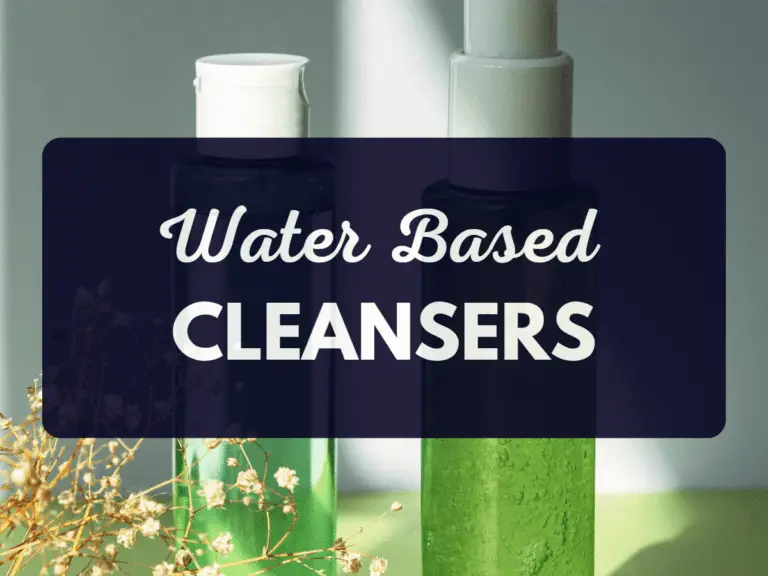When it comes to facial cleansing, the type of cleanser you choose can make a huge difference in your skin health and appearance.
There are two main types of cleansers: water-based and oil-based.
So, which one is better for your skin?
Let’s take a closer look.
The answer to whether a water-based cleanser is better than an oil-based one depends on your skin type and concerns. Both types of cleansers have their advantages and disadvantages.
Benefits of Water-Based Cleansers
Water-based cleansers are great for removing dirt, oil, and sweat from the skin. They are typically lightweight and easy to rinse off, making them popular for people with oily or combination skin. Some benefits of using a water-based cleanser include the following:
- Gentle: Water-based cleansers are usually gentle and non-irritating, making them the best choice for people with sensitive skin.
- Hydrating: Many water-based cleansers contain hydrating ingredients like glycerin or hyaluronic acid, which can help to keep the skin hydrated and plump.
- Acne-fighting: Water-based cleansers that contain salicylic acid or benzoyl peroxide can effectively prevent and treat acne.
- Water-based cleansers are non-comedogenic, meaning they will not clog pores.
- They are typically less expensive than other types of cleansers.
- Water-based cleansers are easy to find in drugstores and supermarkets.
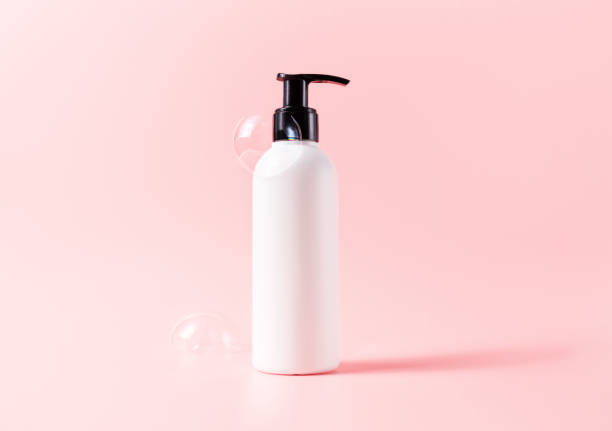
Cons Of Water-Based Cleanser:
- Water-based cleansers may not effectively remove all types of makeup and sunscreen, especially waterproof or long-lasting.
- They can be drying to the skin if used too frequently.
- Some water-based cleansers contain fragrances that may irritate the skin.
Benefits of Oil-Based Cleansers
Oil-based cleansers, on the other hand, are great for removing makeup and sunscreen. They work by dissolving the oils in these products and lifting them off the skin. Some benefits of using an oil-based cleanser include the following:
- Thorough cleansing: Oil-based cleansers can remove even the most stubborn makeup and sunscreen, leaving your skin fresh and refreshed.
- Hydrating: Many oil-based cleansers contain nourishing oils like jojoba or avocado oil, which can help to hydrate and soften the skin.
- Anti-aging: Oil-based cleansers can help prevent signs of aging by removing dirt and pollutants contributing to wrinkles and fine lines.
Disadvantages of Oil-Based Cleansers
- They can be more comedogenic and may clog pores, making them a poor choice for those with acne-prone skin.
- Oil-based cleansers can be heavier and more difficult to rinse off than water-based cleansers, leaving a residue on the skin.
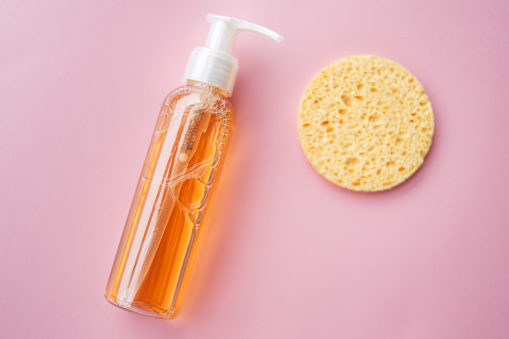
How do you know if a cleanser is oil or water-based?
It’s important to know whether a cleanser is oil or water-based because this will affect how it interacts with your skin and what benefits it provides.
Ways to determine if a cleanser is oil or water-based:
Check the Ingredients List
Look for ingredients like “mineral oil,” “jojoba oil,” or “argan oil,” which indicate that the cleanser is oil-based. The cleanser is likely water-based if the first few ingredients are water or water-soluble ingredients like glycerin or aloe vera.
Look at the Texture
Another way to determine if a cleanser is oil or water-based is to look at the texture. Oil-based cleansers are usually thicker and have a more viscous texture, while water-based cleansers are typically lighter and more watery.
Look for Product Claims
Some cleaners may have product claims that indicate whether they are oil or water-based.
For example, a cleanser that claims to be “oil-free” is likely a water-based cleanser, while a cleanser that claims to be “hydrating” may contain oils and be more suited for dry skin.
Tips for Choosing the Right Cleanser for Your Skin Type
When choosing a cleanser, it’s important to consider your skin type and concerns.
- Oily or acne-prone skin: Look for a water-based cleanser with salicylic acid or benzoyl peroxide to help prevent breakouts.
- Dry or sensitive skin: Look for an oil-based cleanser that contains nourishing oils like jojoba or avocado oil to help hydrate and soften the skin.
- Combination skin: Look for a gentle water-based cleanser that won’t strip the skin’s natural oils.
What is the difference between oil-based and water-based cleansers?
Oil-based cleansers and water-based cleansers have different formulations and are used for different purposes. Here are some of the main differences:
- Formulation: Oil-based cleansers are formulated with oils such as coconut, olive, or jojoba oil, while water-based cleansers are formulated with water as the main ingredient and may contain other ingredients such as surfactants, glycerin, or natural extracts.
- Skin type: Oil-based cleansers are ideal for people with dry/sensitive skin as they can help to hydrate and nourish the skin. Water-based cleansers are better suited for people with oily/acne-prone skin as they can remove excess oil and dirt from the skin.
- Cleansing power: Oil-based cleansers effectively remove oil-based impurities such as makeup, sunscreen, and sebum. Water-based cleansers effectively remove water-based impurities such as sweat, dirt, and pollution.
- Method of use: Oil-based cleansers are usually applied to dry skin and massaged in, while water-based cleansers are applied to wet skin and lathered up.
- Rinsing: Oil-based cleansers require more thorough rinsing as they can leave an oily residue on the skin if not rinsed properly. Water-based cleansers are easier to rinse off and do not leave a residue.
Is Water or Oil Based Cleanser Better for Acne?
If you have acne-prone skin, you may be wondering whether a water-based or oil-based cleanser is better for your skin. The truth is that both types of cleansers can be effective for treating acne, and the one that is right for you will depend on your skin type and concerns.
Water-based cleansers are typically better for people with oily or acne-prone skin. They can remove excess oil and prevent breakouts. Look for water-based cleansers that contain salicylic acid or benzoyl peroxide, as these ingredients can effectively treat acne.
Oil-based cleansers can also treat acne, especially with dry or sensitive skin. Look for oil-based cleansers that contain tea tree oil or other anti-inflammatory ingredients, as these can reduce the redness and inflammation caused due to acne.
Do You Need an Oil Cleanser and a Water Cleanser?
If you wear makeup or sunscreen daily, using both an oil- and water-based cleanser is a good idea.
Here’s why:
- Oil-based cleansers are great for removing makeup and sunscreen. They can dissolve even the most stubborn products and refresh your skin.
- Water-based cleansers are great for removing dirt, sweat, and excess oil from the skin. They can help prevent breakouts and keep your skin healthy and radiant.
Final Thoughts
Whether you should use a water- or oil-based cleanser depends on the skin type and concern.
Both types of cleansers have their benefits, and using both can be especially effective for removing all makeup traces and dirt from your skin. It’s also important to note that using a cleanser alone is insufficient to maintain healthy skin.
Following up with a good skincare routine that includes a toner, serum, and moisturizer to keep your skin hydrated and nourished is important.

